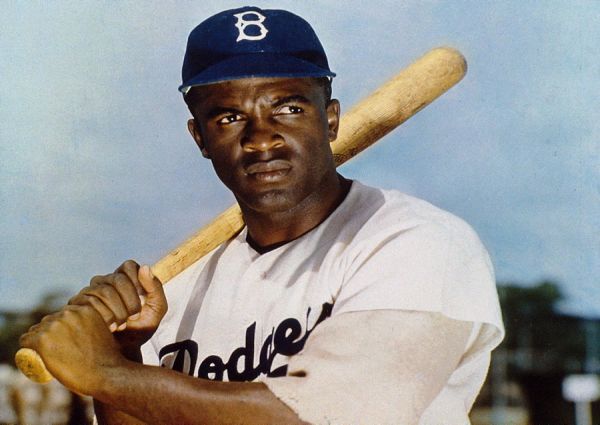In our semi-regular column “They Reminisce”, we take a quick look back at some of the more memorable and lasting moments in sports and entertainment.
In July of 1962, Jackie Robinson was inducted into the National Baseball Hall of Fame in Cooperstown, New York. Yes, he was a phenomenal baseball player, an all-time great. But the power of the narrative took place off the field, because when he first jogged on the manicured grass at Ebbetts Field in Brooklyn on April 15th, 1947, he didn’t just change the dynamics of Major League Baseball, he changed America’s entire cultural landscape as well.
The sense of pride he imbued in the Black community can never be overstated, along with the sense of tomorrow being pregnant with possibility that was equal parts civil rights accelerant and the introduction of the soulful aesthetic into the country’s greater sports consciousness.
After a phenomenal career as a student-athlete at UCLA, he was reared as a pro with the Kansas City Monarchs in the Negro Leagues, where the game was played with a much more exciting and electrifying style. He brought that speed, daring, creativity and wonder to Major League Baseball, destroying the myth that black men played the game on an inferior level.
He symbolized hope in a time when African-Americans were catching hell in this country.
People want to scrub America clean of its vicious sins, but this was a time when NAACP leader Elbert Williams was lynched in Tennessee, when Jesse Thornton was lynched in Alabama after failing to refer to a police officer as “Sir,” when FDR ramped up the bigotry of Japanese by ordering the internment of Japanese Americans, when white mobs rioted in Detroit because of the influx of Black people arriving during the Great Migration getting hired in factories, when white servicemen attacked Latino youth during the Los Angeles Zoot Suit Riots and stripped them of their clothes, when 14-year-old George Stinney was executed in South Carolina, when thousands upon thousands of other incidents of blatant discrimination and wanton violence were forced on people of color.
Within this cauldron, Robinson was much more than some baseball player. He symbolized progress and hope that things would one day get better, that opportunity would once be color blind, that the evil of disease of American racism would soon be a thing of the past.
In his 10 seasons, the Brooklyn Dodgers won six pennants and the 1955 World Series.
He brought an element of speed and cunning on the base paths that had never been seen in MLB before, dominating games with not only his hitting, but as a base runner. He stole home base 19 times during his career and in 1949, was named National League MVP while batting.342, stealing 37 bases and knocking in 124 RBI’s with 16 home runs.
No one changed their sport quite like Robinson changed the game of baseball. Between the time he integrated Major League Baseball and when the Boston Red Sox became the last team to integrate 12 years later, African Americans won nine Most Valuable Player awards, nine Rookie of the Year awards, five Home Run titles, four league batting crowns and a Cy Young award.
Jackie Robinson was a man of substance who was immortalized for his baseball prowess on this day in 1962. But he needs to be thought of every day for how impacted the hopes and dreams of millions, the sacrifices he made, the path he blazed and for stomping on the myth of racial inferiority.



